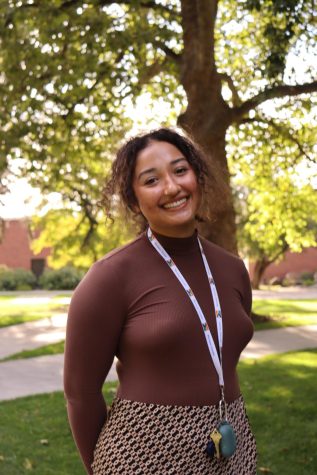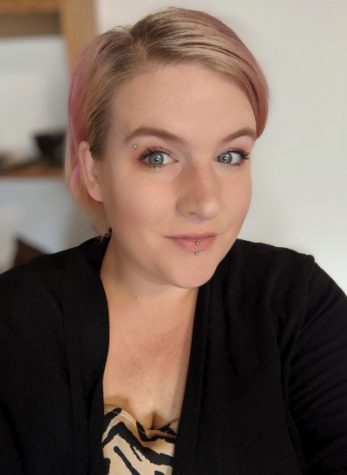Revenge Porn Lawyer Comes to Whitman Campus
Q&A With Carrie Goldberg
April 13, 2017
Carrie Goldberg runs a legal practice in Brooklyn that specializes in sexual abuse and privacy, or going after “assholes,” as she recently put it at a lunch with Whitman students interested in law. Her star has risen in past years, as she has become a prominent and successful advocate for victims and legal reform at the tricky intersection of technology and personal privacy, a realm that is becoming more and more problematic as the internet and its offspring creep deeper into American culture. She sat down with The Wire last week during her visit to campus, which was arranged by Student Engagement Center. Content has been edited for concision and clarity.
You talked in this lunch about this period of floundering that you think it’s good to go through in general, and that you said you went through after college in determining your own legal identity. Can you dig into that a little more and explain why for a graduating college student, that’s not such a bad thing?
CG: I think I owe my career to the fact that I didn’t know exactly what I wanted to do when I graduated from college. I wasn’t a star student who had her pick of jobs after college, or even after law school, and it forced me to explore jobs and areas of the law that I never would have found had I gotten the ideal job I was looking for.
I think so many students, particularly in this day and age, are so judgmental of themselves because so many people are asking them, ‘What are you gonna do after college? Where are you gonna work?’ It’s so hard to find jobs. And yet, it actually can be a gift not to know exactly what you want to do.
Presumably you founded your firm with a vision, a set of expectations. Is there anything in particular that has surprised you?
CG: Well, when I started the firm I kind of just expected to be a solo practitioner and just to have a small little shop. I was blown away by how much attention I immediately received because the field that I’m in–there are just so few attorneys doing this kind of law. So it ended up being something to report on. It itself was a story, that there are now attorneys that just focus on sexual privacy, or just focus on victims, and so it meant that I got tons and tons of cases and needed to grow, and I’m delighted by that. I want to keep growing, but the velocity that we’ve grown is overwhelming. And I certainly wasn’t expecting to get all the other opportunities that I’ve gotten. Like to get to be involved in state and federal legislation, and to get to testifying front of congress and get invited to the White House-
And presumably that was not part of the initial vision?
CG: No, I wasn’t thinking as big. Now, Sony is developing a fictional TV show about me and Penguin just paid me a lot of money to write a book. I’m consulting on this Netflix show. Like all these crazy–these amazing opportunities have come because there is a value to the kind of work we’re doing at the firm.
Did you go into it thinking in terms of, I’m gonna be an advocate, or maybe for you there’s a lot of crossover being a lawyer and advocate?
CG: It’s very interchangeable, yeah. We’re councilors.
I’m not quite sure of the timeline of all these opportunities. Would you accredit the New Yorker profile as the thing that got you big in that sense?
CG: Well, I think even earlier than that there was a shift where suddenly the media felt comfortable writing about revenge porn, writing about sexual privacy. That shift happened in 2015, which was around when we got a lot of our tech companies to create anti-revenge porn bans. And so, those were being reported on. Suddenly, journalists wanted to hear about victim’s stories. Then some very high profile victims, like Jennifer Lawrence, came forward and it all kind of happened at the same time where there was this perfect storm of attention to the issue, and a recognition that, ‘Oh my god, there’s so much work to be done here, and there are some of these misfits lawyers who are trying to do it.’
Going forward, has your personal vision and the vision of your firm changed?
CG: Our newest mission is to expand to also work on certain specifically targeted populations who are being trolled on the internet and harassed online, like abortion providers and advocates. I mean, at the end of the day, I’m just gonna stay a lawyer and I’m just gonna keep focusing on using the law to change the reality.











